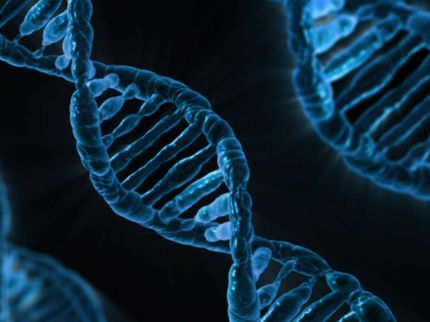Scientists decode 'software' instructions of aggressive leukemia cells
Researchers locate molecules that drive the development of 3 forms of deadly white blood cell cancers, pointing researchers to new potential therapeutic targets
Advertisement
A team of national and international researchers, led by Weill Cornell Medical College scientists, have decoded the key "software" instructions that drive three of the most virulent forms of acute lymphoblastic leukemia (ALL). They discovered ALL's "software" is encoded with epigenetic marks, chemical modifications of DNA and surrounding proteins, allowing the research team to identify new potential biomarkers and therapeutic targets.
The research, published in Cancer Discovery, is the first study to show how these three different forms of white blood cell cancer are epigenetically programmed by several different molecules controlling cascading biological networks that manipulate normal gene function, directing cancer development and growth.
"Epigenetic programming is the software that is written on to human DNA, which can be viewed as its hard drive. This programming contains the instructions that determine how cells including leukemia cells function and cause disease," says the study's lead investigator, Dr. Ari Melnick, associate professor of medicine and director of the Raymond and Beverly Sackler Center for Biomedical and Physical Sciences at Weill Cornell Medical College.
"Finding the instructions that ultimately lead to cancer development, and to the especially bad outcome seen in patients with these different forms of ALL, is especially urgent. Epigenetic instructions are contained in many chemical layers. Our study is the first to integrate the decoding of many layers simultaneously, which has enabled us to unlock some of the mysteries explaining the malignant and aggressive behavior of these leukemias," says Dr. Melnick, who is also a hematologist-oncologist at NewYork-Presbyterian Hospital/Weill Cornell Medical Center.
Abnormal Epigenetic Programming Leads to Poor Outcomes
The research team examined abnormalities in the "software" epigenetic programming that leads to the three forms of adult B-acute lymphoblastic leukemia (B-ALL), the most common form of ALL. These forms are BCR-ABL1-positive B-ALL, E2A-PBX1-positive B-ALL, and MLLr-B-ALL. These three B-ALL subtypes feature mutations of different master regulatory genes which force bone marrow cells to produce cancer-promoting proteins. Long-term survival is less than 40 percent among these patients.
"Similar to normal tissue, we believe that tumors may be dependent on specific patterns of epigenetic programming -- especially in B-ALL, where studies suggests epigenomic programming is globally disrupted," Dr. Melnick says. "Our goal was to identify epigenetically modified genes and the molecular machines that cause them to become abnormally programmed."
To that end, the research team performed DNA methylation and gene expression profiling on 215 adult B-ALL patients enrolled in the ECOG E2993 clinical trial, a multi-center and multi-national study, testing different forms of treatment in patients with ALL.
Researchers identified core epigenetic gene signatures that were associated with abnormal fusion proteins. In the case of BCR-ABL1-positive B-ALL, they found that the most deregulated gene network centered around an extraordinarily epigenetically deregulated gene they identified as interleukin-2 receptor alpha, which encodes a protein called CD25.
"Among patients who had BCR-ABL1-positive B-ALL, it was those with aberrant epigenetic programming of CD25 that had significantly worse outcome," says Dr. Melnick. "It's the patients that have this programming glitch that do really poorly." Although the researchers don't yet know what CD25 does, and why it is important, they say CD25 will be a useful biomarker to test for patients that are at highest risk for poorer outcome.























































